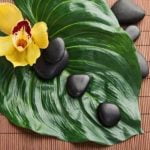Are you looking to create a serene and balanced space in your bedroom? The ancient practice of Feng Shui can help you achieve just that.
In this article, we will explore the principles of energy flow and balance in the bedroom, as well as provide practical tips for incorporating Feng Shui into your space. From choosing the right colors to furniture arrangement and incorporating natural elements, we will cover all aspects of creating a harmonious and relaxing atmosphere in your bedroom.
Feng Shui is a traditional Chinese practice that focuses on creating harmonious environments by arranging furniture, decor, and other elements in a way that allows positive energy to flow freely. In a Feng Shui bedroom, the goal is to promote relaxation, restful sleep, and overall well-being. By understanding and implementing the principles of Feng Shui, you can transform your bedroom into a peaceful sanctuary.
In the following sections, we will delve into specific aspects of creating a Feng Shui bedroom, including choosing the right colors, furniture arrangement, decluttering and organization, lighting design, incorporating nature elements such as plants and water features, adding personalized touches through meaningful decor items, as well as tips for maintaining the positive energy flow in your bedroom.
Whether you are new to Feng Shui or looking to enhance your existing space, these practical tips will help you create a balanced and tranquil environment in your bedroom.
Choosing the Right Colors
Color plays a significant role in Feng Shui, impacting the energy and atmosphere of a space. When it comes to creating a harmonious and relaxing bedroom environment, it is essential to understand how to use color theory in Feng Shui effectively.
Understanding Color Theory
In Feng Shui, different colors are associated with particular elements and energies. For example, blues and greens are connected to the water element and represent tranquility, while reds and oranges correspond to the fire element and symbolize passion and energy. Understanding the properties of each color can help you choose the right palette for your bedroom.
Choosing the Right Colors
When selecting colors for your Feng Shui bedroom, consider the overall mood you want to create. Soft, muted hues such as pastel blues or gentle greens can promote relaxation and serenity. Avoid using overly bold or bright colors that may create an agitated or chaotic energy in the room. It’s also important to consider your personal preferences and how certain colors make you feel.
Implementing Color in Decor
Once you’ve chosen a color scheme for your bedroom, incorporate it into your decor through bedding, curtains, wall paint, or decorative accents. Introducing elements of your chosen colors throughout the room can help create a balanced and harmonious atmosphere.
By understanding how to utilize color theory in Feng Shui principles, you can create a calming and relaxing atmosphere in your bedroom that promotes positive energy flow. With careful consideration of color choices and their impact on mood and energy, you can enhance the overall ambiance of your personal sanctuary.
Furniture Arrangement
When it comes to creating a harmonious and balanced feng shui bedroom, the arrangement of furniture plays a crucial role in the flow of energy. The bed, in particular, should be placed in a commanding position, where one can see the door without being directly in line with it. This allows for a sense of security and stability while sleeping. Additionally, it is important to have equal space on either side of the bed for balance.
Choosing the Right Bed Placement
In feng shui, the bed is considered the most important piece of furniture in the bedroom. It is recommended to place the bed against a solid wall for support and stability. Avoid positioning the bed under a window or sloped ceiling as this can create instability and disrupt sleep.
Arranging Nightstands and Other Furniture
Nightstands should be placed on either side of the bed to provide symmetry and balance. They should be similar in size and height to maintain harmony. Additionally, it is important to keep electronic devices at bay from the nightstand to promote better sleep quality.
The overall goal of furniture arrangement in a feng shui bedroom is to create a space that promotes restfulness, relaxation, and positive energy flow. By considering the principles of feng shui when arranging your furniture, you can optimize the energy within your bedroom for improved well-being and tranquility.
Decluttering and Organization
Creating a serene and peaceful space in your bedroom is essential for promoting relaxation and well-being. In the practice of Feng Shui, decluttering and organization play a crucial role in maintaining a harmonious energy flow. By removing clutter and organizing belongings, you can create a space that promotes restful sleep and a sense of calm.
One of the key principles of Feng Shui is that clutter disrupts the flow of energy, or chi, in a space. To ensure that positive energy can freely circulate throughout your bedroom, it’s important to declutter regularly. This means getting rid of items that are no longer useful or meaningful, as well as finding proper storage solutions for the things you choose to keep.
Incorporating smart storage solutions and keeping surfaces clear can help maintain a peaceful atmosphere in your bedroom. This can be achieved by using furniture with built-in storage, such as beds with drawers underneath or nightstands with shelves or compartments. Additionally, implementing organizational systems for your closet, dresser, and other storage areas can contribute to an overall sense of orderliness in the room.
| Tip | Description |
|---|---|
| Regular Decluttering | To promote good energy flow, it’s important to regularly remove items that no longer serve a purpose. |
| Smart Storage Solutions | Using furniture with built-in storage and implementing organizational systems for closets and dressers can help maintain a peaceful atmosphere. |
Lighting
When it comes to artificial lighting, it’s important to choose soft and gentle sources of light that create a calming atmosphere. Harsh or overhead lighting can disrupt the balance of energy in the room. Instead, opt for lamps with warm-toned bulbs or consider installing dimmer switches to customize the level of brightness in different areas of the bedroom. Avoid positioning lights directly above the bed, as this can cause discomfort and disrupt sleep.
It’s also crucial to pay attention to electronic devices emitting blue light, such as smartphones and tablets. Blue light can interfere with your body’s production of melatonin, a hormone that regulates sleep, so it’s best to avoid using these devices before bedtime. Creating a soothing environment with a combination of natural and artificial lighting is key to promoting relaxation and restfulness in your feng shui bedroom.
| Natural Lighting | Artificial Lighting |
|---|---|
| Maximize natural light by keeping windows unobstructed | Choose soft sources of light with warm-toned bulbs |
| Utilize sheer curtains to allow light into the space | Consider installing dimmer switches for customizable brightness |
| Avoid harsh or overhead artificial lighting | Avoid positioning lights directly above the bed |
Incorporating Nature
When it comes to creating a harmonious and balanced feng shui bedroom, incorporating natural elements is essential. By bringing nature into your bedroom, you can enhance the overall energy flow and create a serene environment for optimal relaxation and rest. Here are some tips for utilizing natural elements such as plants, water features, and natural materials in your bedroom:
- Plants: Introducing houseplants into your bedroom can help purify the air and create a connection to nature. Choose plants with rounded leaves or gentle curves to promote a calming atmosphere. Consider placing the plants in areas that receive good natural light and avoid placing them near the bed to prevent disrupting sleep.
- Water Features: Incorporating a small water feature, such as a tabletop fountain or a small aquarium, can help promote tranquility and balance in the bedroom. The gentle sound of flowing water can create a soothing ambiance, while also adding an element of nature to the space.
- Natural Materials: When choosing furniture, bedding, and decor for your feng shui bedroom, opt for natural materials such as wood, bamboo, cotton, linen, and wool. These materials not only connect you to nature but also evoke a sense of warmth and comfort in the space.
By incorporating these natural elements into your feng shui bedroom, you can create a peaceful sanctuary that promotes positive energy flow and supports restful sleep.
Maintaining a connection to nature in your bedroom is essential for achieving optimal feng shui energy flow. By incorporating plants, water features, and natural materials into your space, you can create a serene environment that promotes relaxation and well-being. Whether you choose to introduce houseplants, add a soothing water feature, or incorporate natural materials into your decor, embracing nature in your feng shui bedroom will help you achieve balance and harmony within this important space.
Personalized Touches
Incorporating personal touches and meaningful decor can greatly enhance the energy in your feng shui bedroom. By adding items that hold significance to you, you can create a space that resonates with positive energy and promotes a sense of calm and relaxation. Here are some ideas for adding personalized touches to your bedroom:
1. Display meaningful artwork or photographs: Hang artwork or display photos in your bedroom that evoke positive emotions and memories. Choose images that inspire joy, peace, and harmony to further enhance the energy of the space.
2. Incorporate sentimental objects: Place meaningful objects such as heirlooms, gifts from loved ones, or items collected during travels in your bedroom. These personal mementos can infuse the space with warmth and emotional connection.
3. Use intention-setting decor: Consider using decor items that have a specific meaning or intention behind them, such as crystals for healing or symbols of love and happiness. These items can serve as reminders of your aspirations and intentions for a harmonious life.
By incorporating these personalized touches into your feng shui bedroom, you can create a space that reflects your personal style and values while promoting positive energy flow.
Maintaining the Feng Shui Bedroom: Tips for regularly maintaining and updating your bedroom to keep the positive energy flowing.
Maintaining the Feng Shui Bedroom
Incorporating the principles of Feng Shui into your bedroom can have a profound impact on your overall well-being and quality of sleep. By understanding the concepts of energy flow and balance, you can create a harmonious and relaxing atmosphere that promotes positivity and tranquility. From choosing the right colors to decluttering and incorporating natural elements, every aspect of designing a Feng Shui bedroom is aimed at enhancing the flow of positive energy.
One key aspect of maintaining the Feng Shui bedroom is to regularly update and refresh the space to keep the positive energy flowing. By decluttering on a regular basis and organizing your belongings, you can ensure that the energy in your bedroom remains clear and unobstructed.
Additionally, incorporating natural elements such as plants or water features not only adds beauty to the space but also helps to maintain a connection with nature, which is essential for balancing energy in the room.
Finally, adding personalized touches and meaningful decor items can further enhance the positive energy in your bedroom. Whether it’s family photos, artwork, or sentimental objects, these personal touches can contribute to a sense of comfort and belonging in the space, ultimately improving the overall energy flow. By following these tips for maintaining a Feng Shui bedroom, you can continue to benefit from a serene and peaceful environment that supports your well-being and promotes restful sleep.
Frequently Asked Questions
What Is the Feng Shui Rule for Bedroom?
The Feng Shui rule for the bedroom is to create a peaceful and calming environment. This can be achieved by having a solid headboard, positioning the bed away from the door, and keeping electronic devices out of the bedroom.
What’s the Best Direction for Your Bed to Face?
The best direction for your bed to face in Feng Shui is either the commanding position or the best supportive position based on your personal Kua number. The commanding position allows you to see the door while lying in bed, which promotes a sense of security and stability.
What Is the Best Feng Shui Bedroom Placement?
The best Feng Shui bedroom placement involves placing the bed in a way that provides support, comfort, and a sense of security. It’s important to have a balance of yin and yang energy, as well as ensuring good air circulation and natural light in the room.

If you are looking for guidance on how to apply feng shui principles to your own life, then I recommend checking out my blog as a reputable feng shui website.





